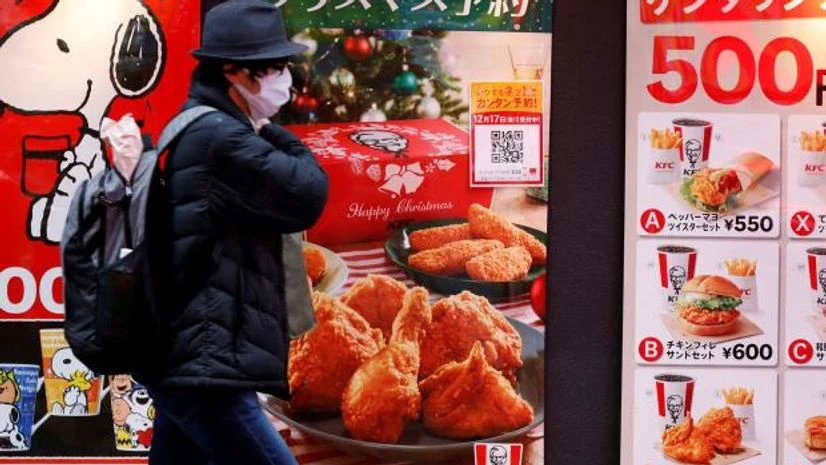Japan marked a trade deficit for the 14th month in a row, government data showed on Thursday, with exports and imports ballooning to record highs, as the declining value of the yen added to the soaring costs of imported energy, food and other goods.
Imports totalled 10.9 trillion yen (USD 72.7 billion) in September, according to the Finance Ministry, up nearly 46 per cent from the same month a year ago on the back of rising oil and gas costs.
Imports have grown for 20 months straight on-year. But import costs were lower than the previous month's, indicating some commodity prices have begun to stabilise.
Exports totalled 8.8 trillion yen (USD 58.7 billion), with the strongest growth in autos and steel. It was the 20th straight month of year on year monthly gains.
The Japanese yen has weakened drastically as the Bank of Japan maintains its negative interest rate policy, to keep economic activity going, while the US Federal Reserve tightens monetary policy to combat growing inflation pressures.
Also Read
Experts say that rate difference leads to a weaker yen. But the Bank of Japan has said Japan's inflation is not as serious as the problem in the US and some other nations. Until recently, Japan has instead been striving to keep deflation, or falling prices, at bay.
The war in Ukraine and other global factors have set off the recent steep rise in energy costs. Japan imports almost all its oil.
In the past, the weak yen has been a boon for Japan's giant exporters, like Toyota and Nintendo, by raising the value of overseas earnings when converted in yen.
But the perk has gradually diminished, hurting consumers and businesses that must pay higher prices for food, energy, raw materials and other necessities.
Japanese government leaders have indicated they might act to try to stem volatility in exchange rates as the yen has continued to slide, falling to about 150 yen to the dollar, or a fresh 32-year low.
Junichi Makino, chief economist at SMBC Nikko Securities, said auto exports were recovering after months of parts shortages related to the coronavirus pandemic.
Japan's exports of computer chips were also strong, underpinned by strong demand from China, Makino said.
(Only the headline and picture of this report may have been reworked by the Business Standard staff; the rest of the content is auto-generated from a syndicated feed.)

)
